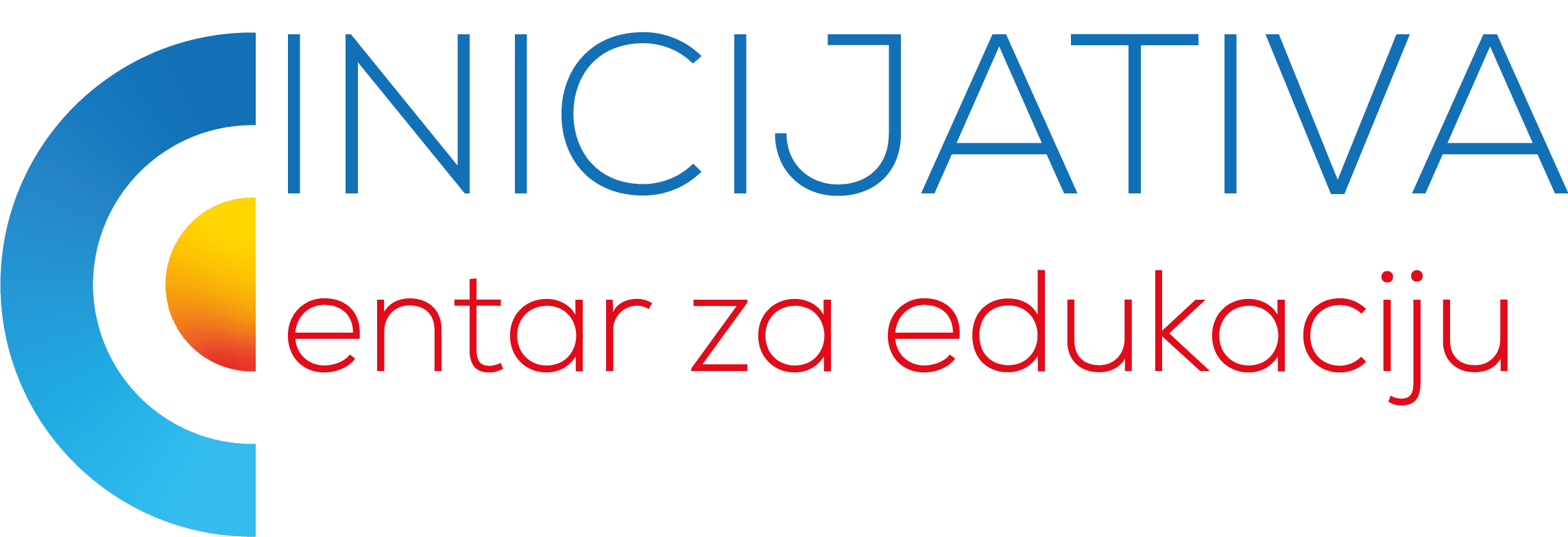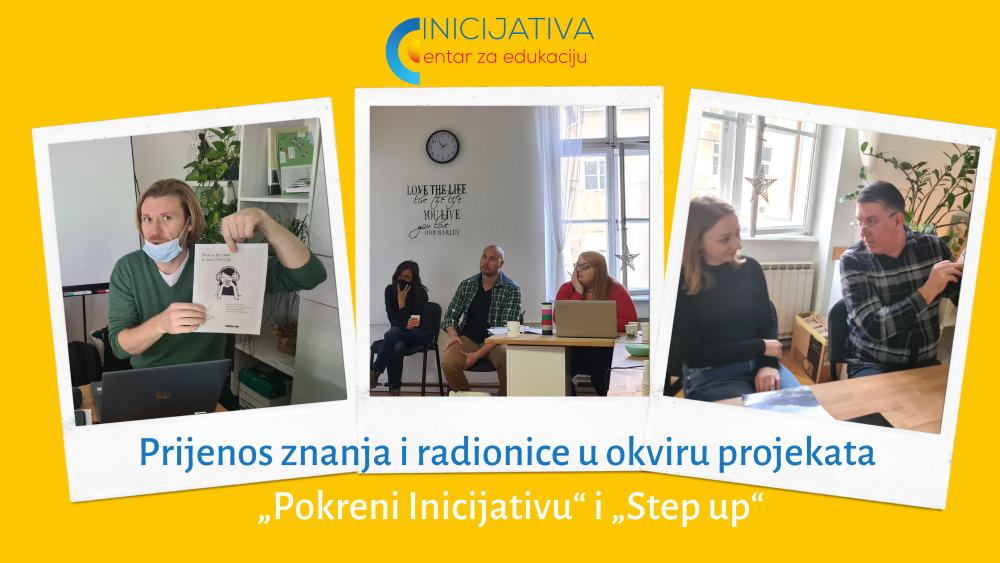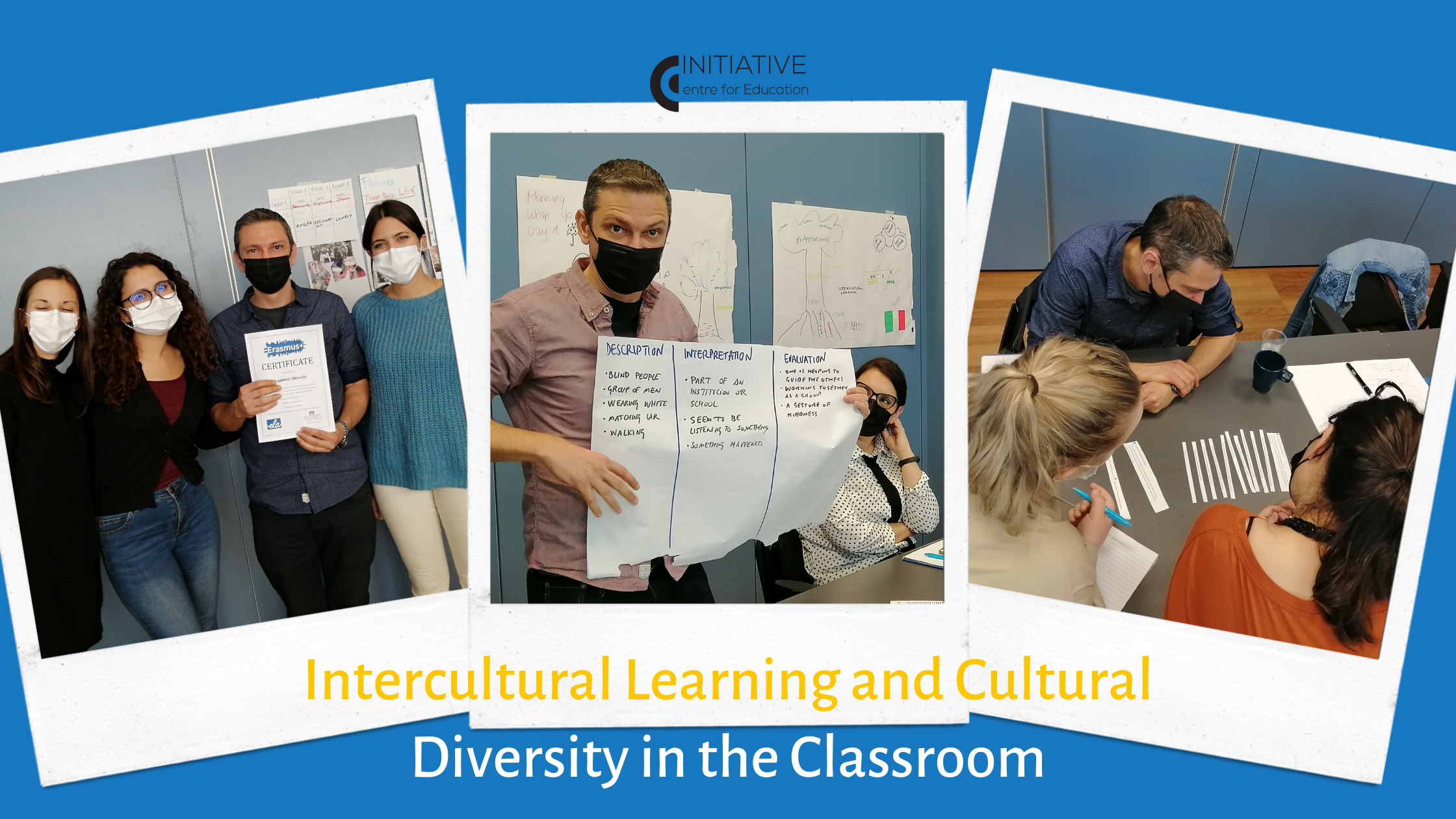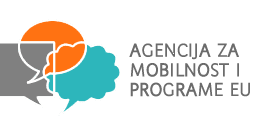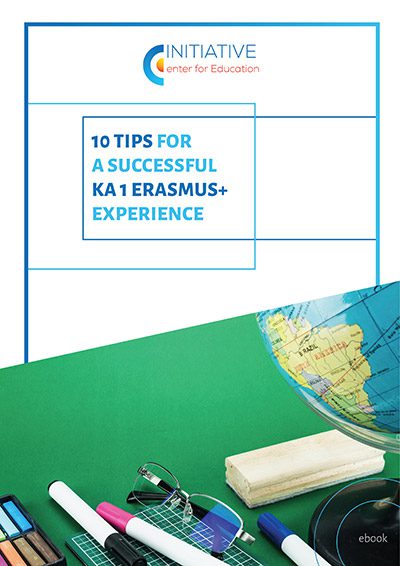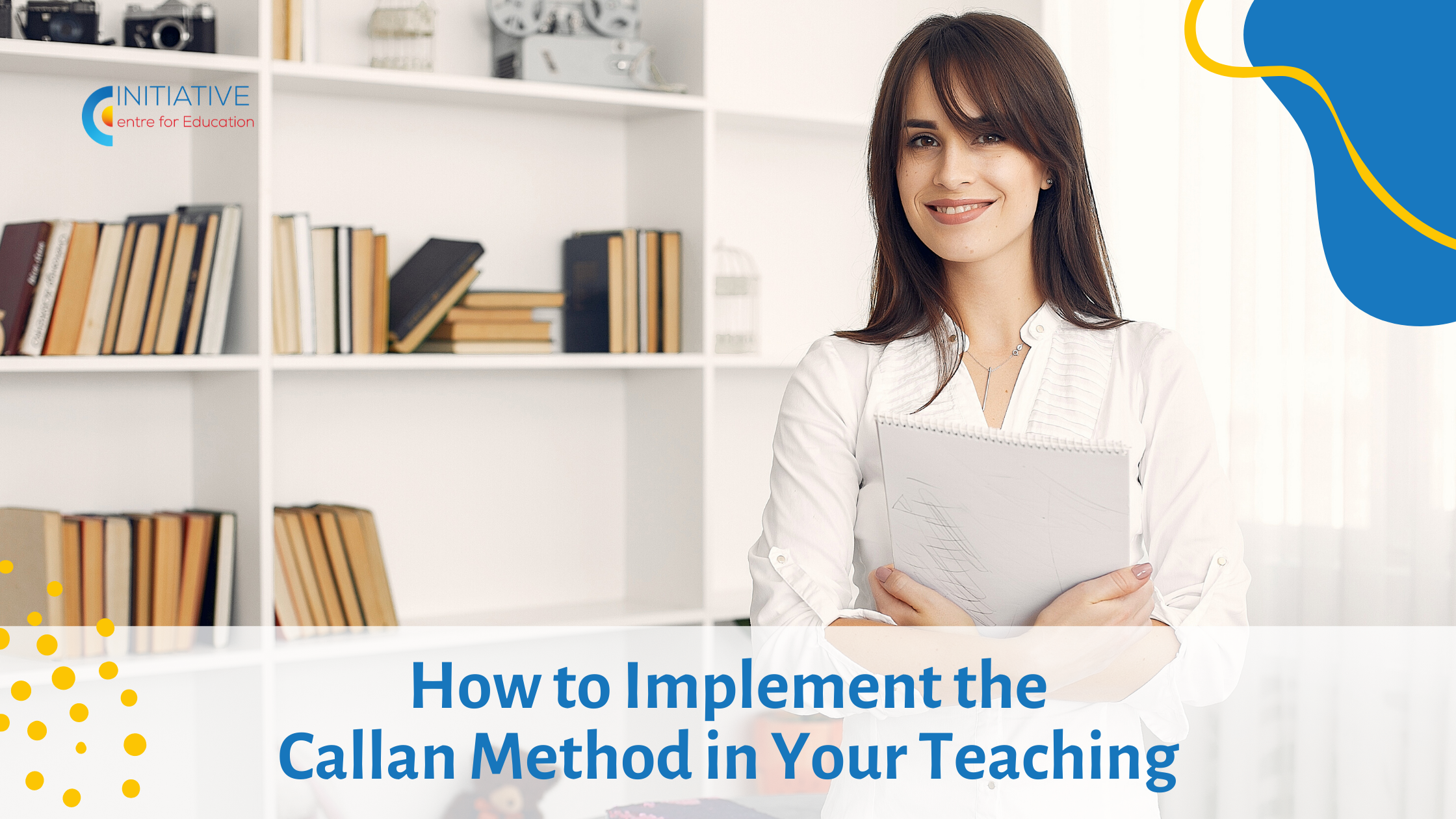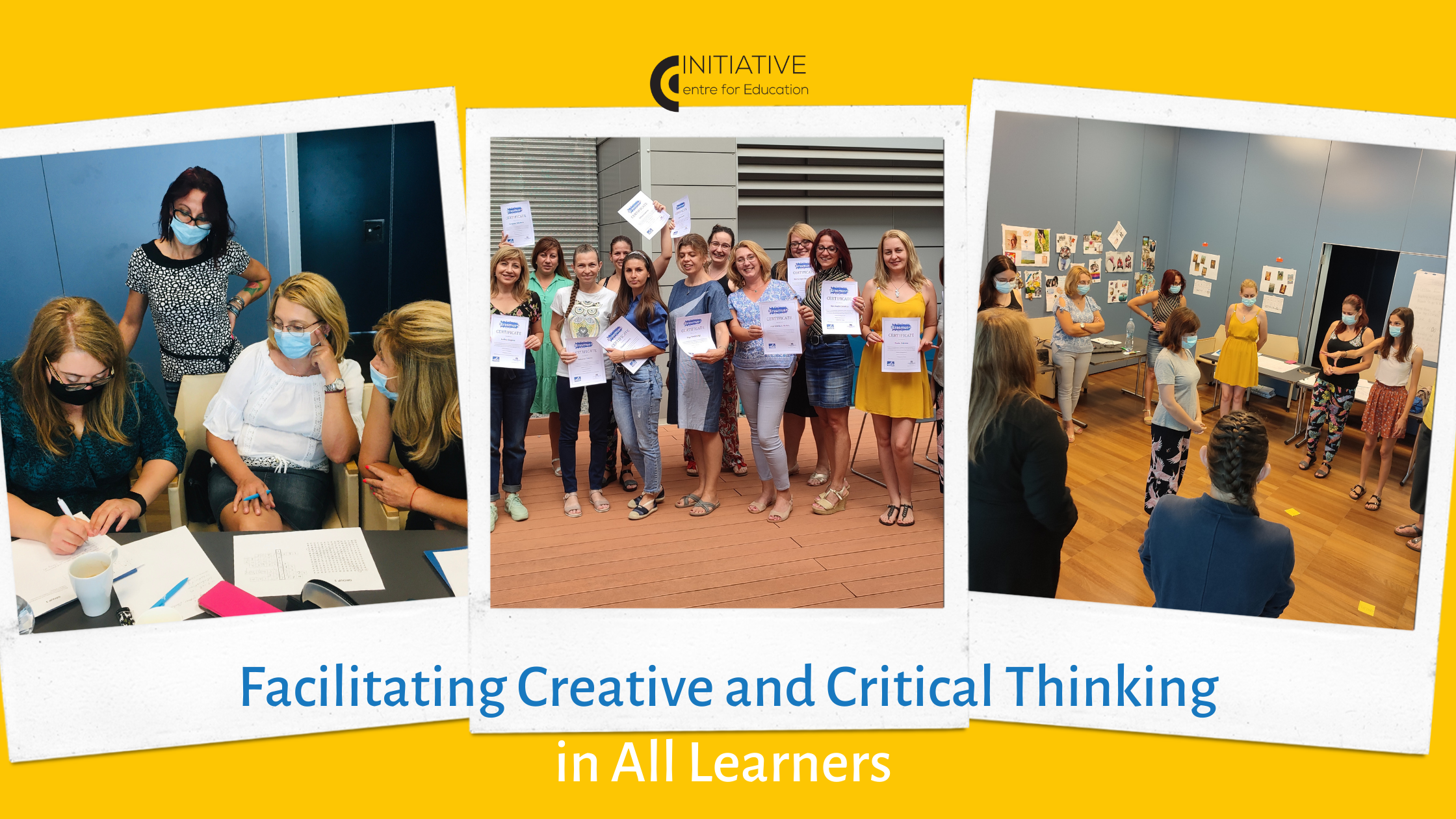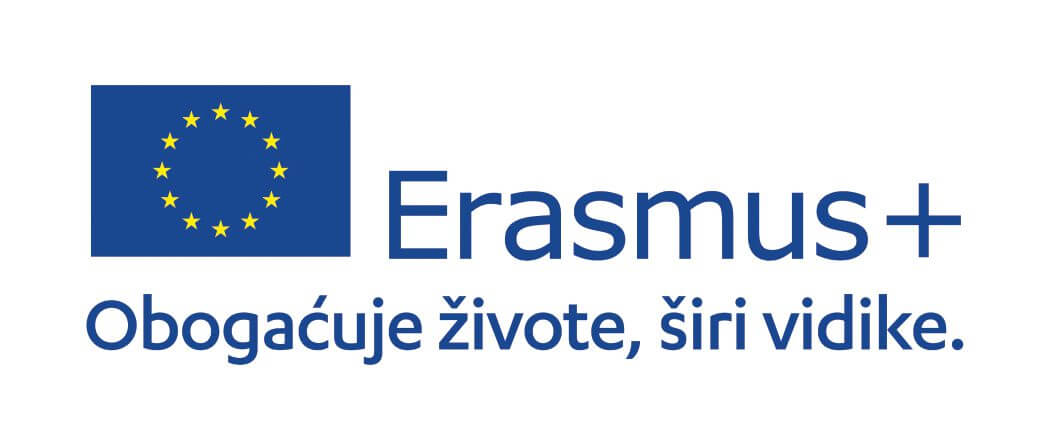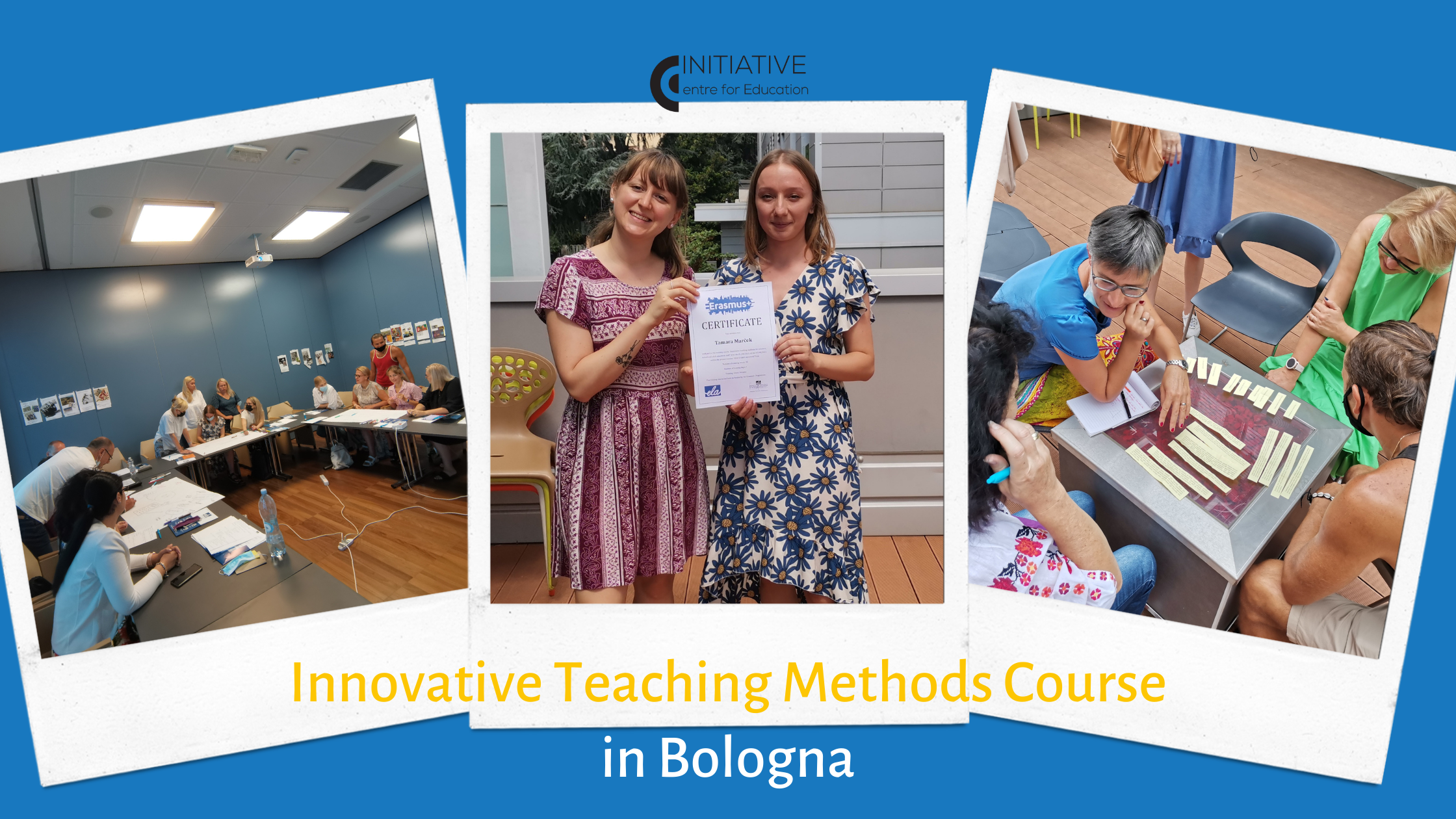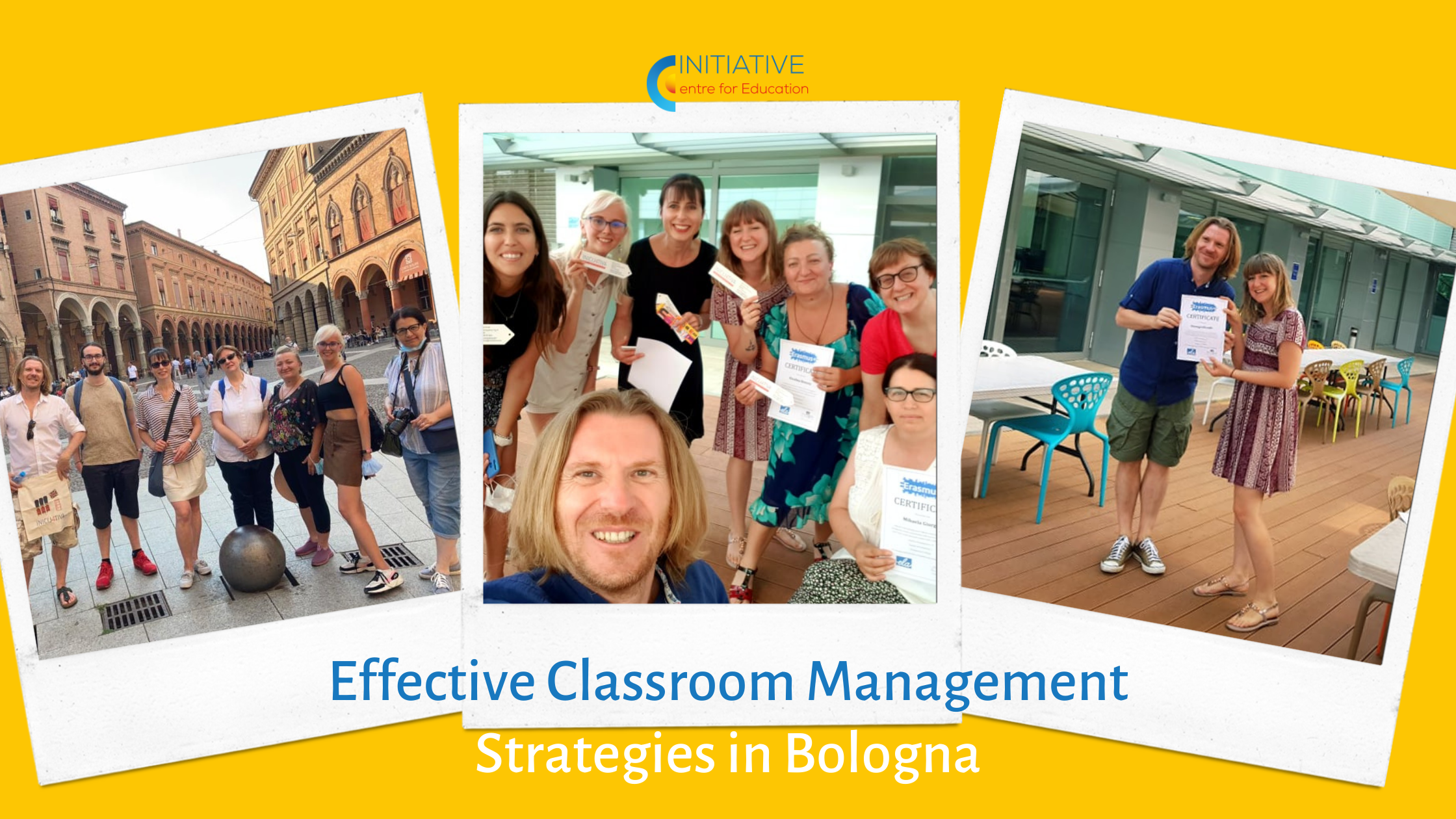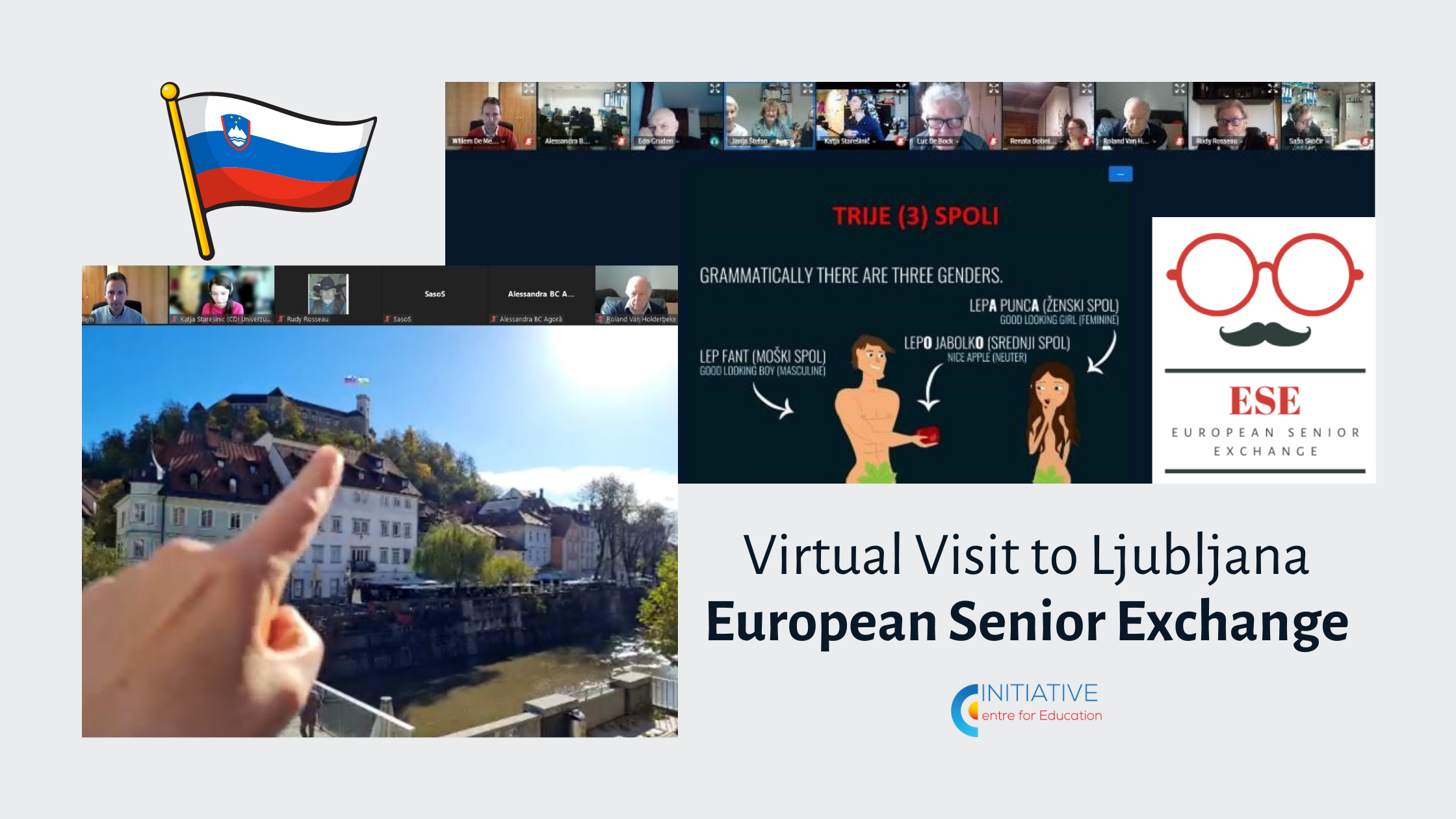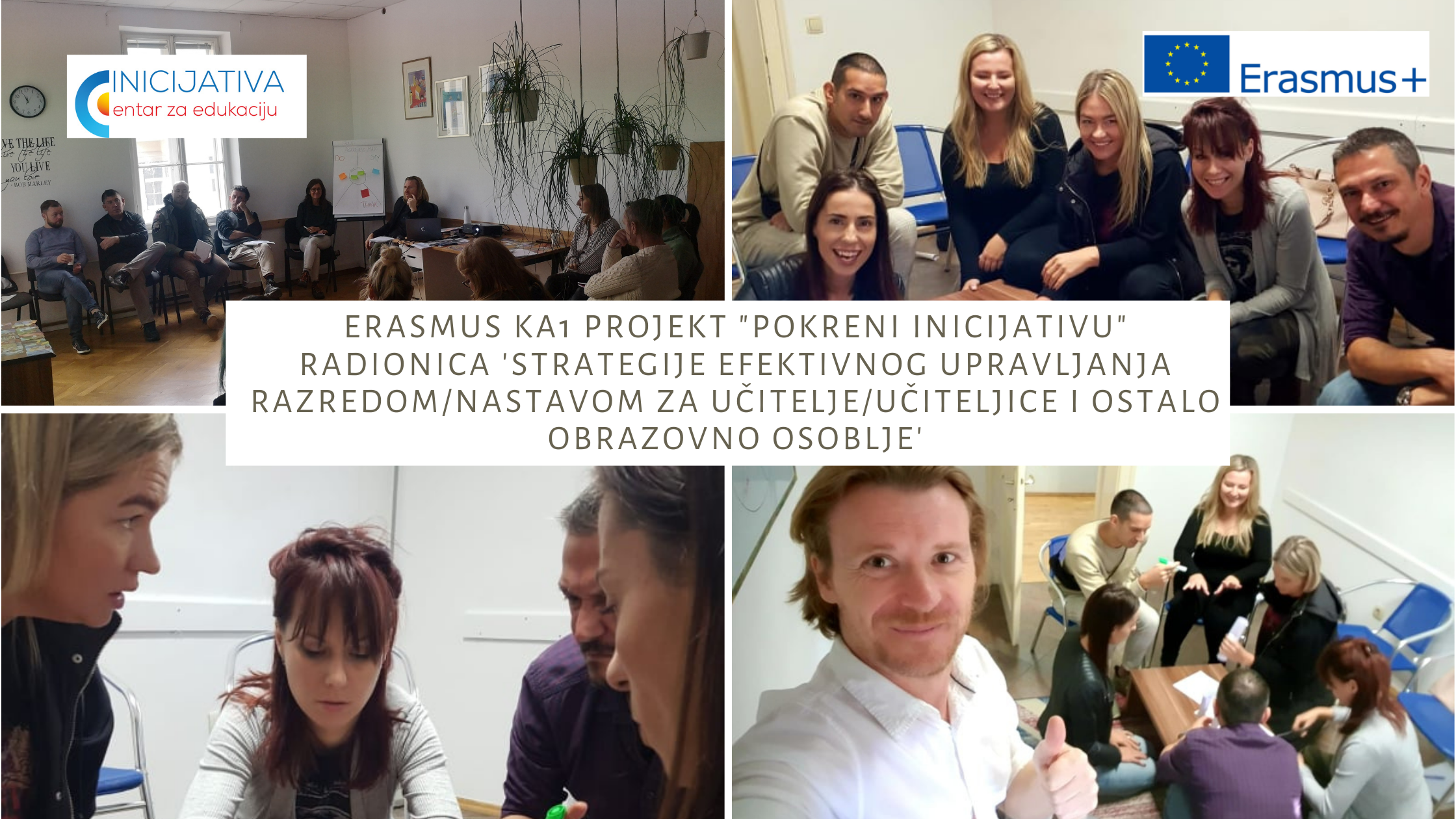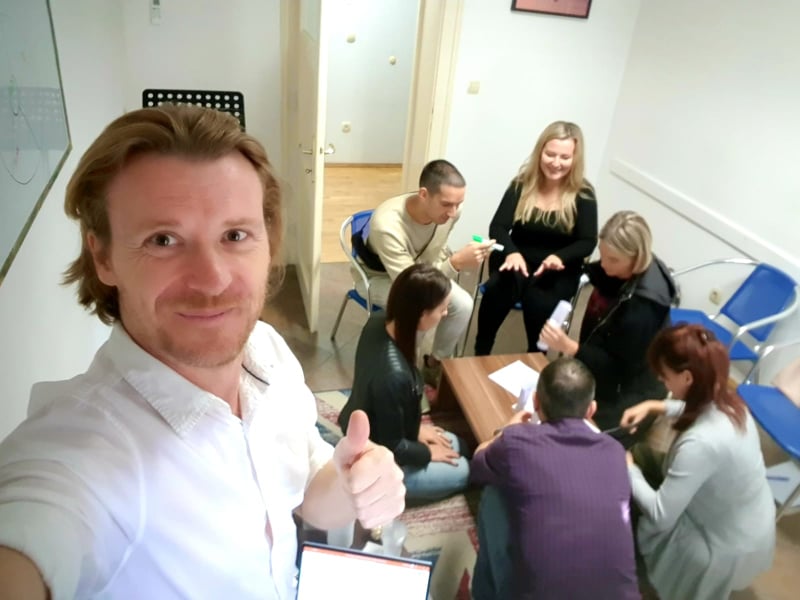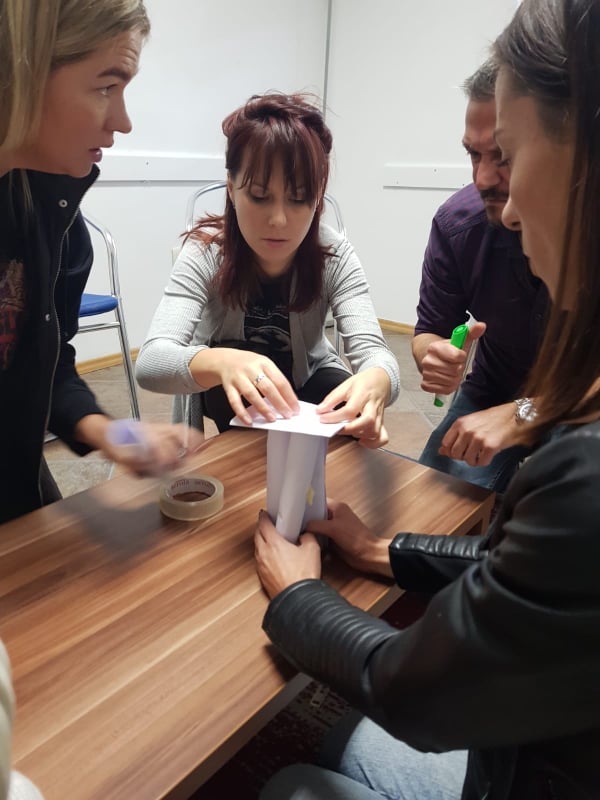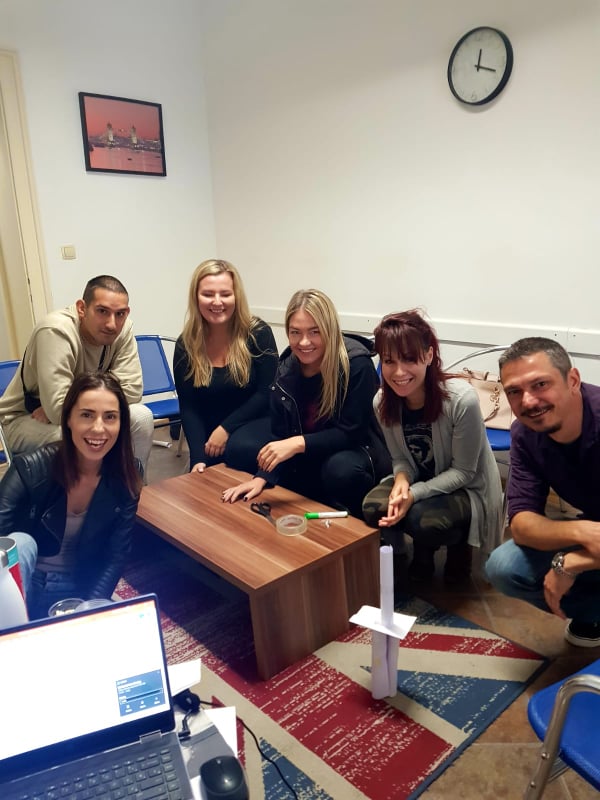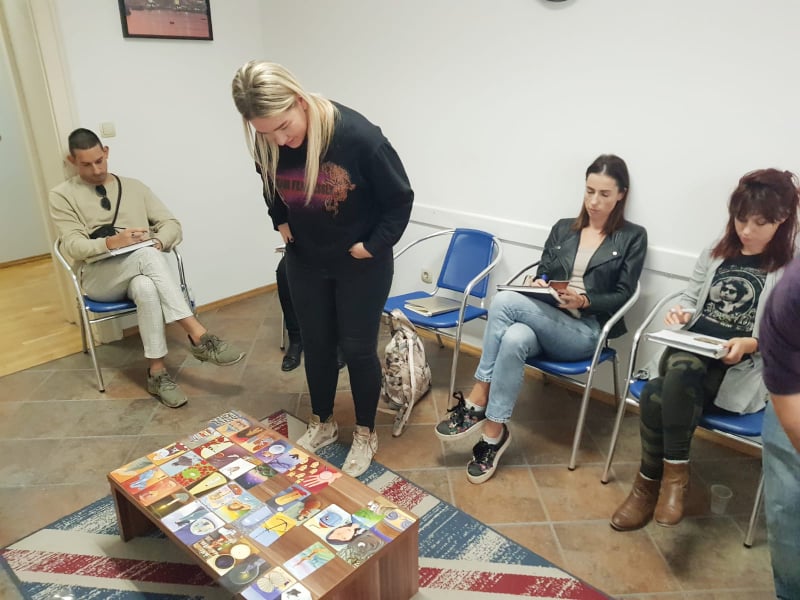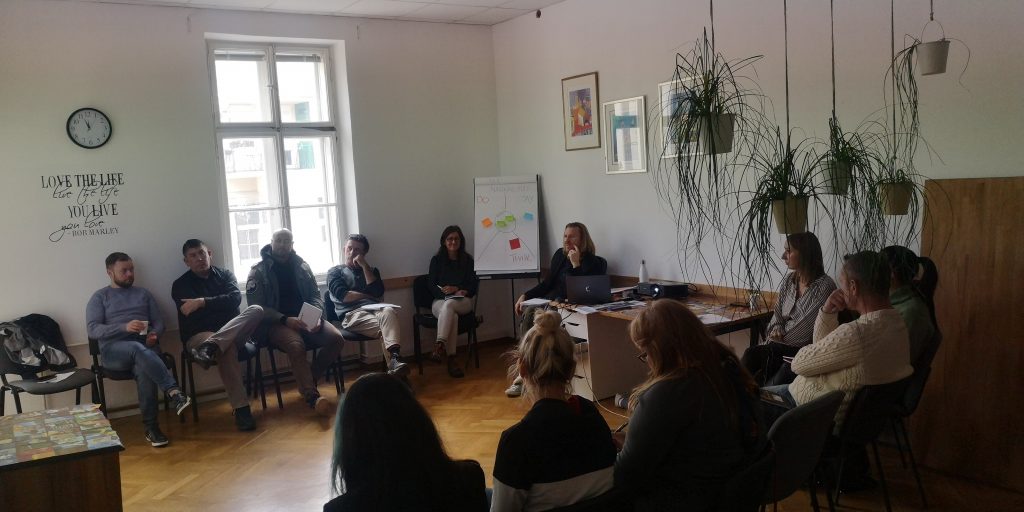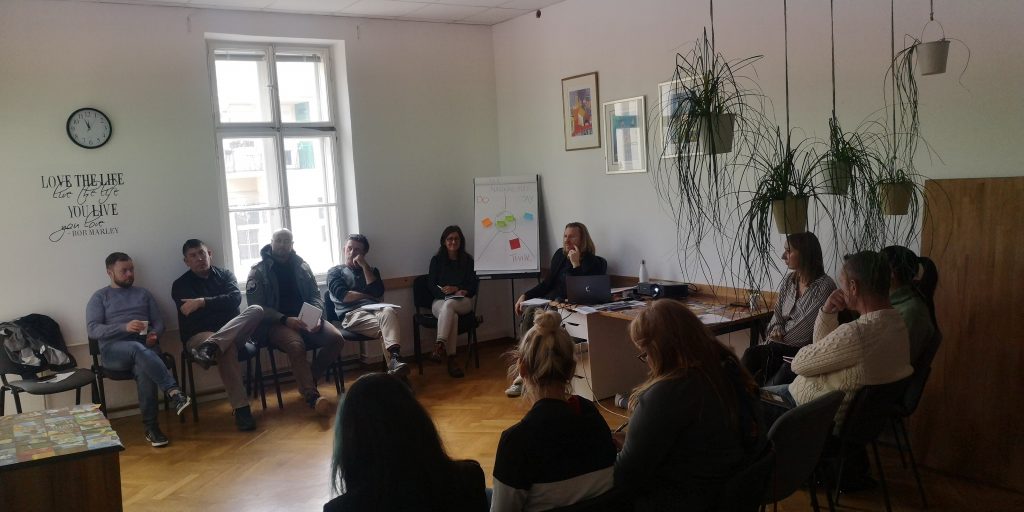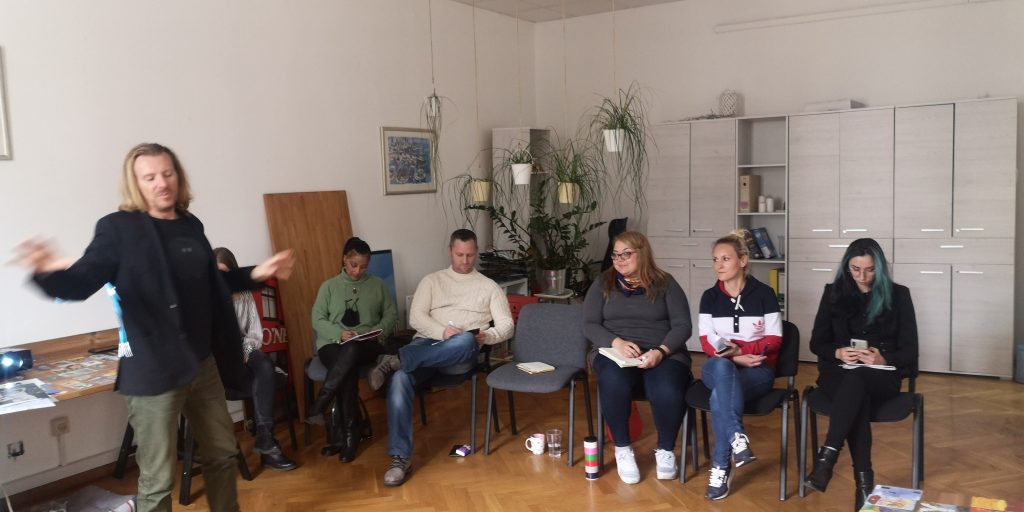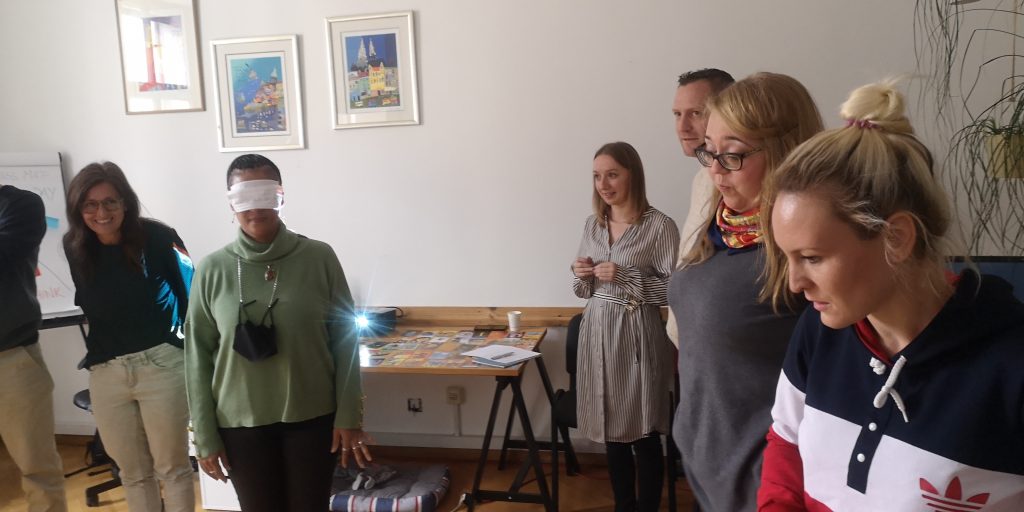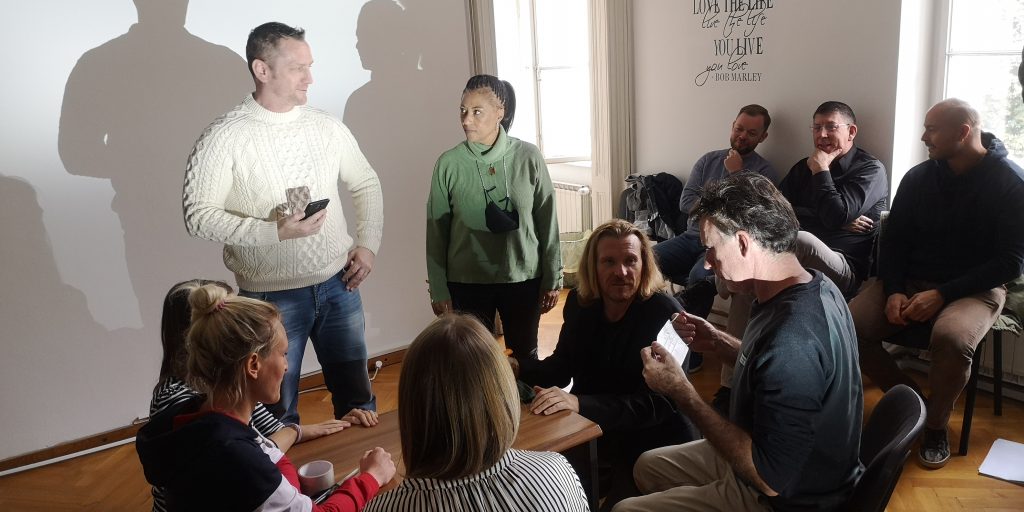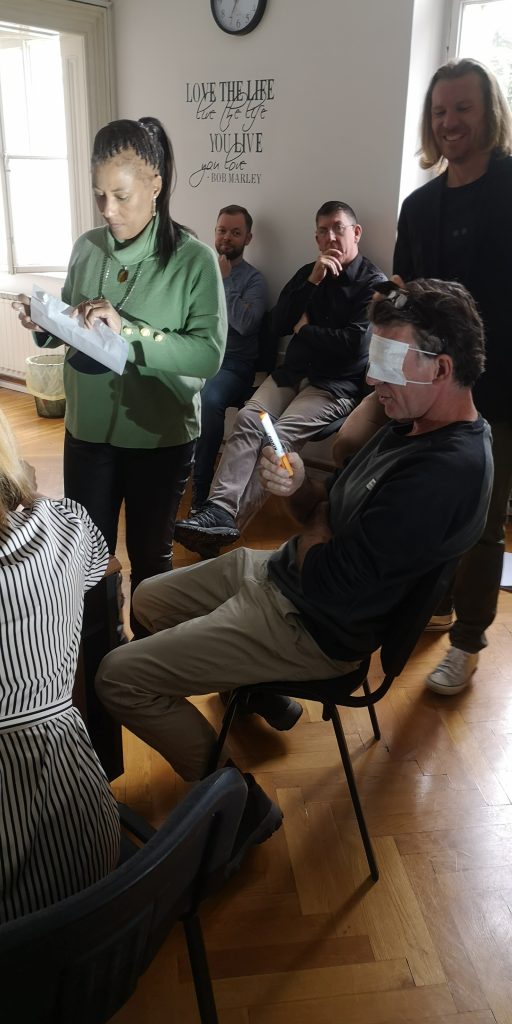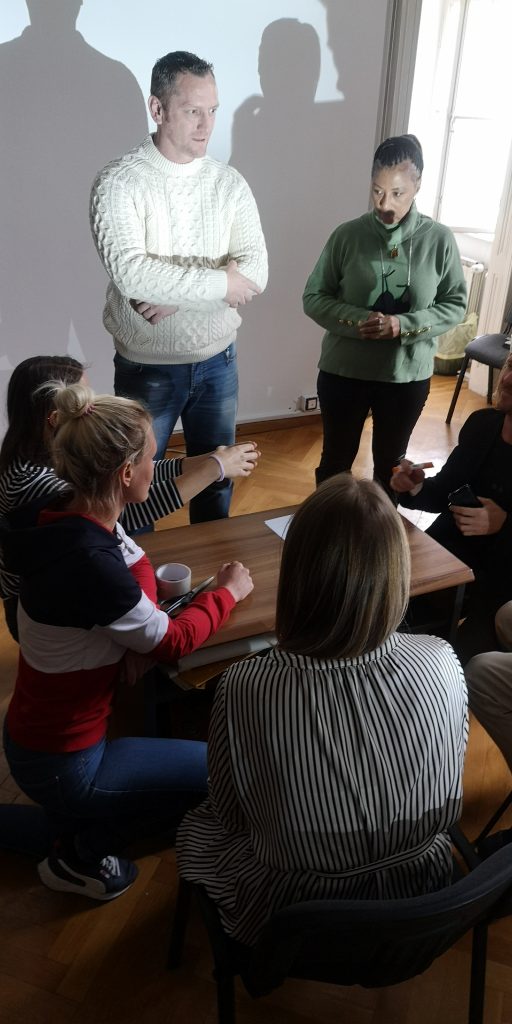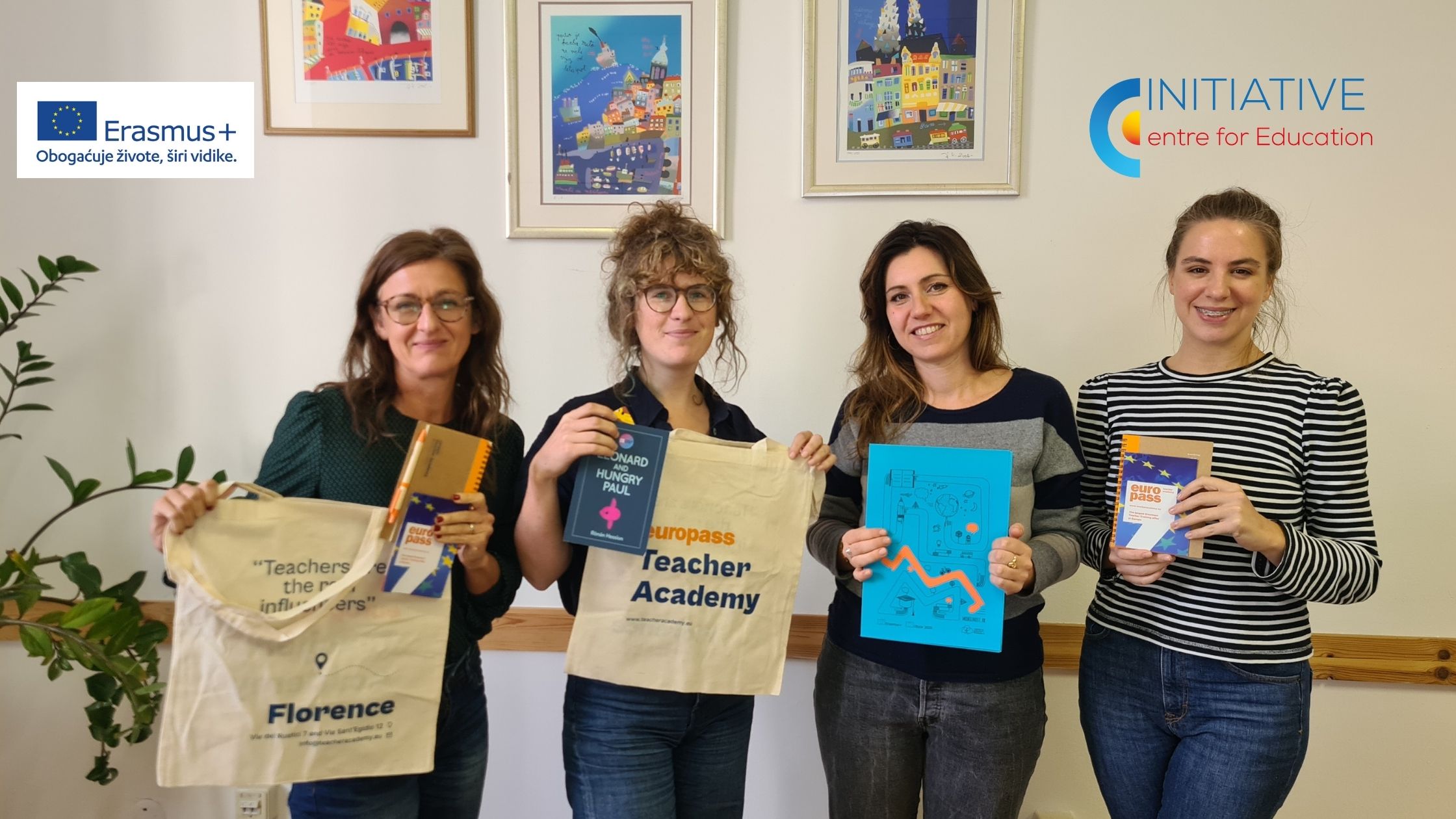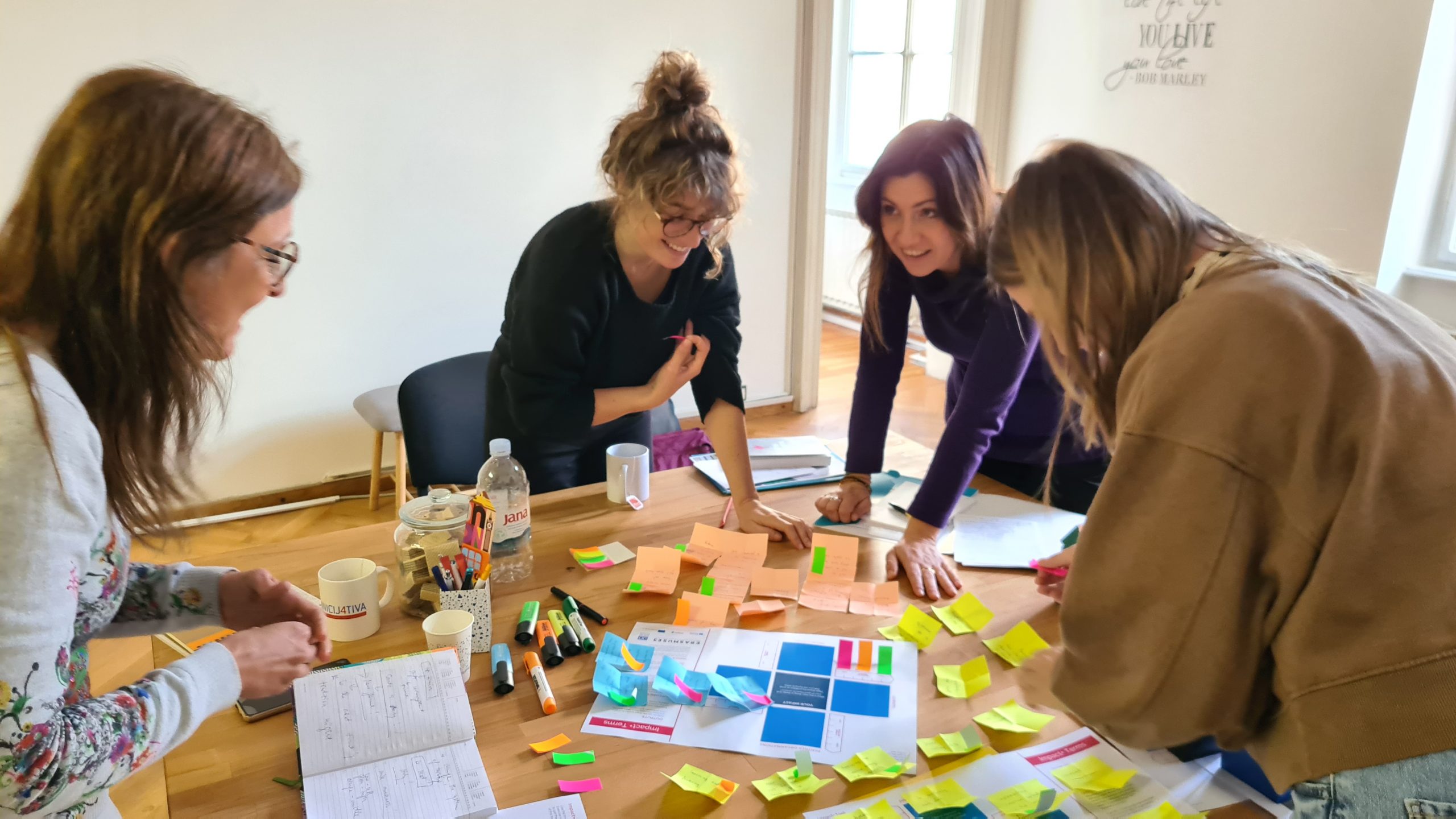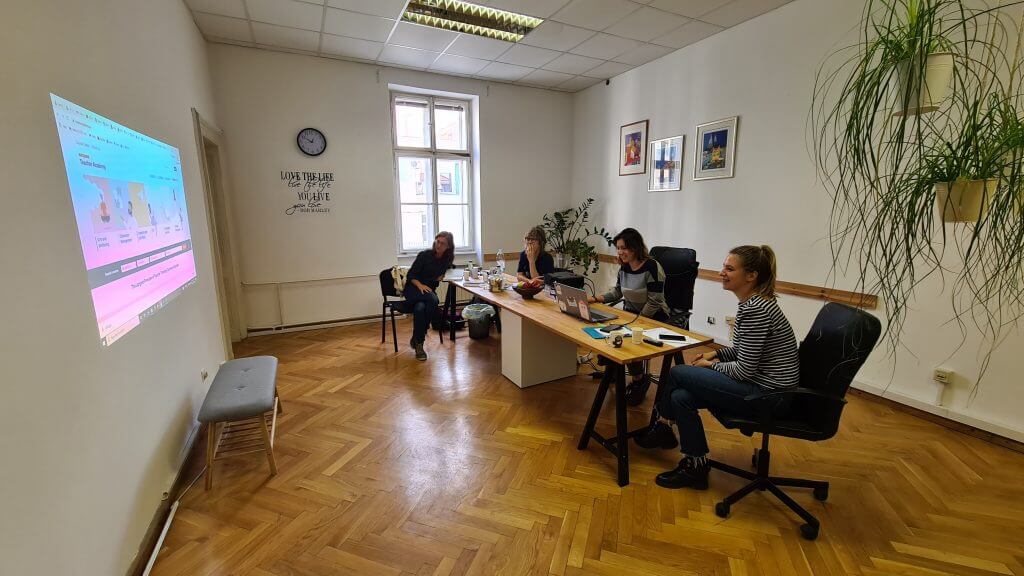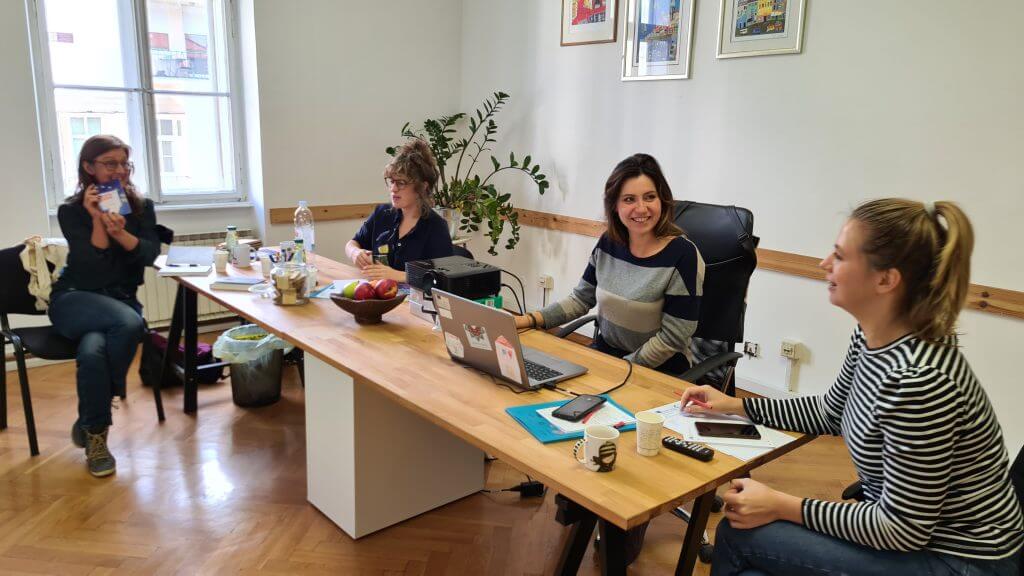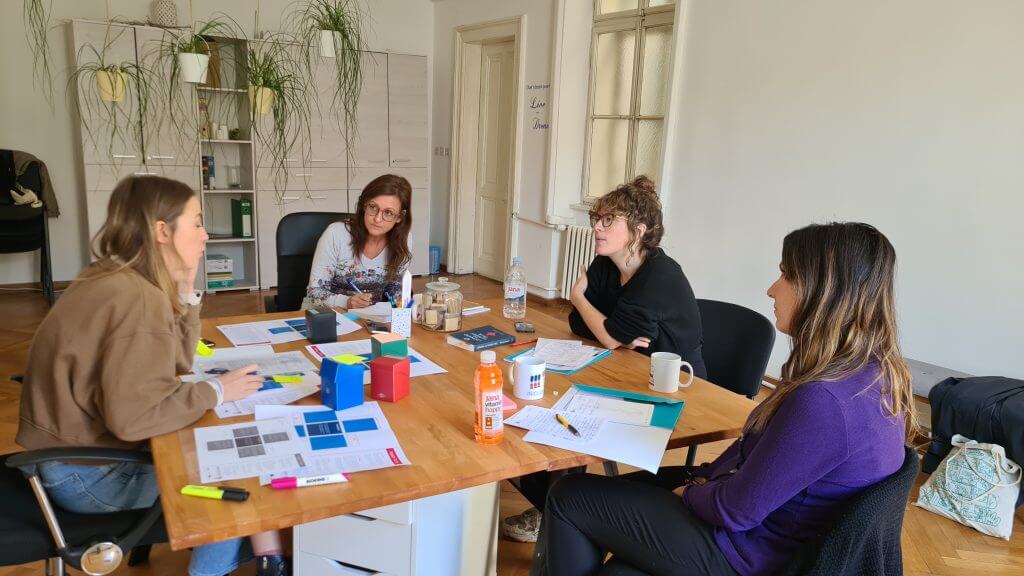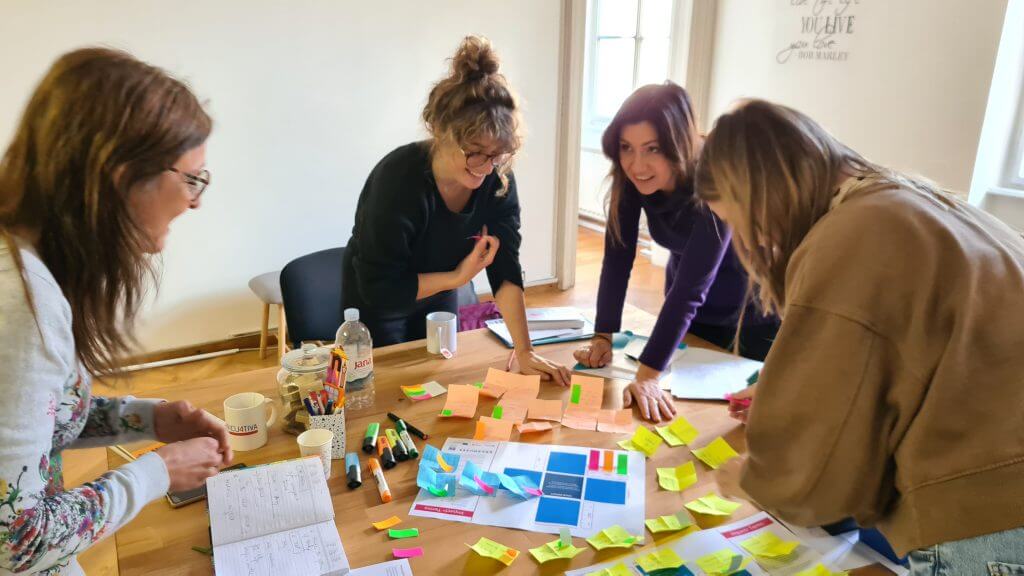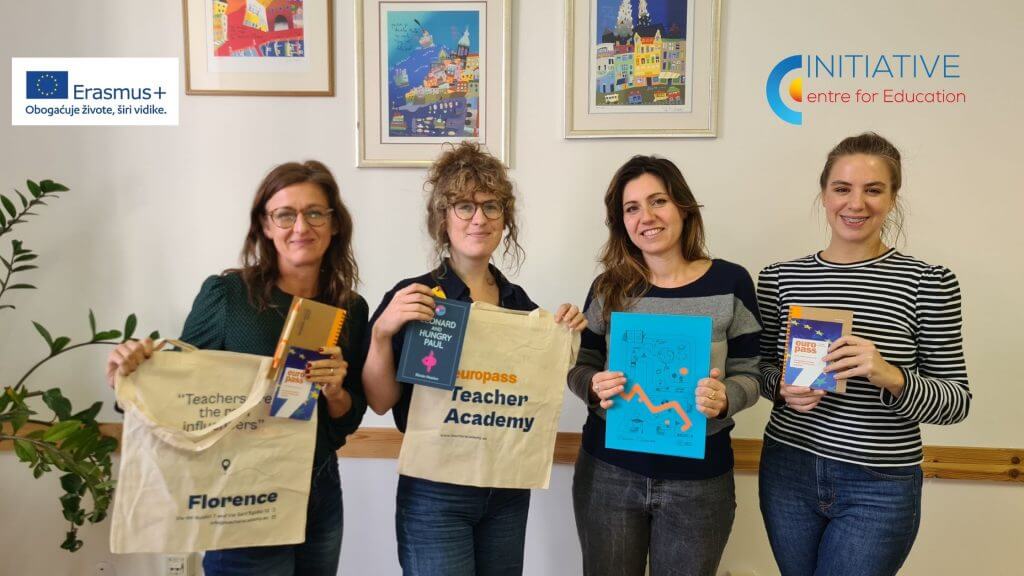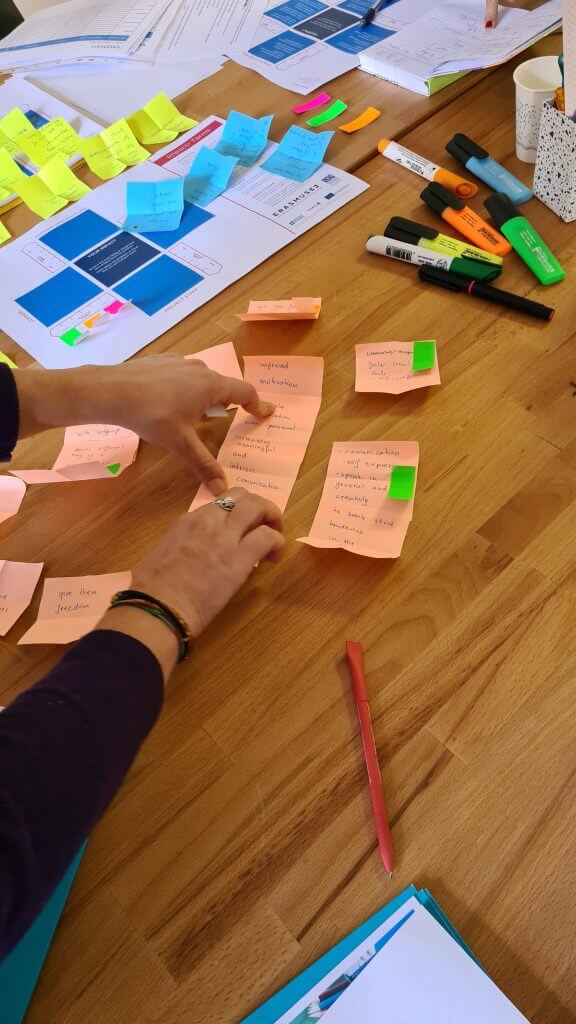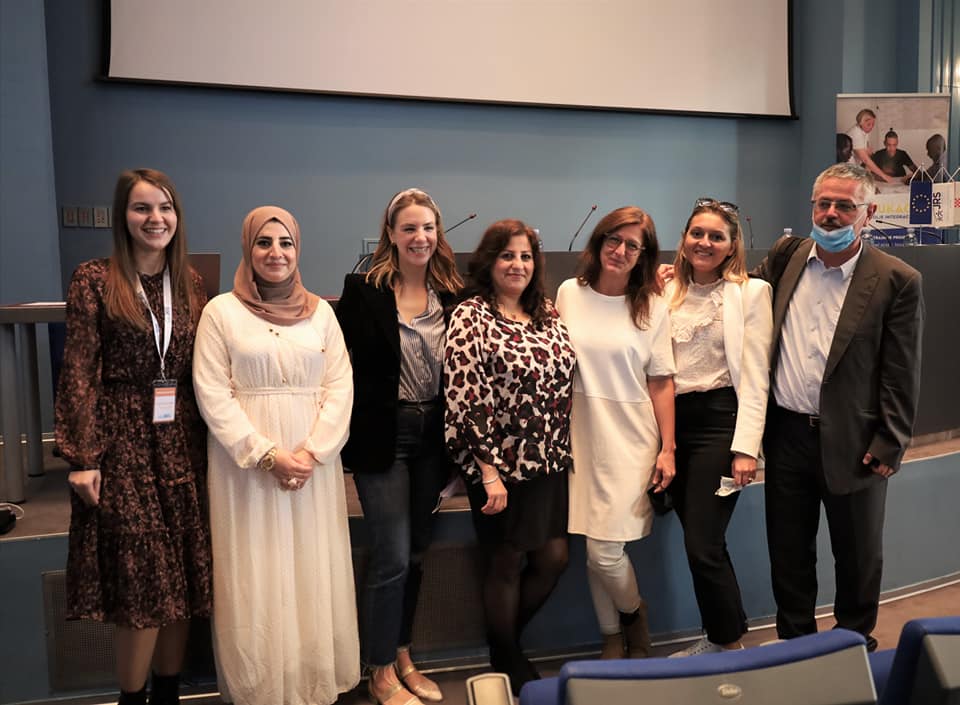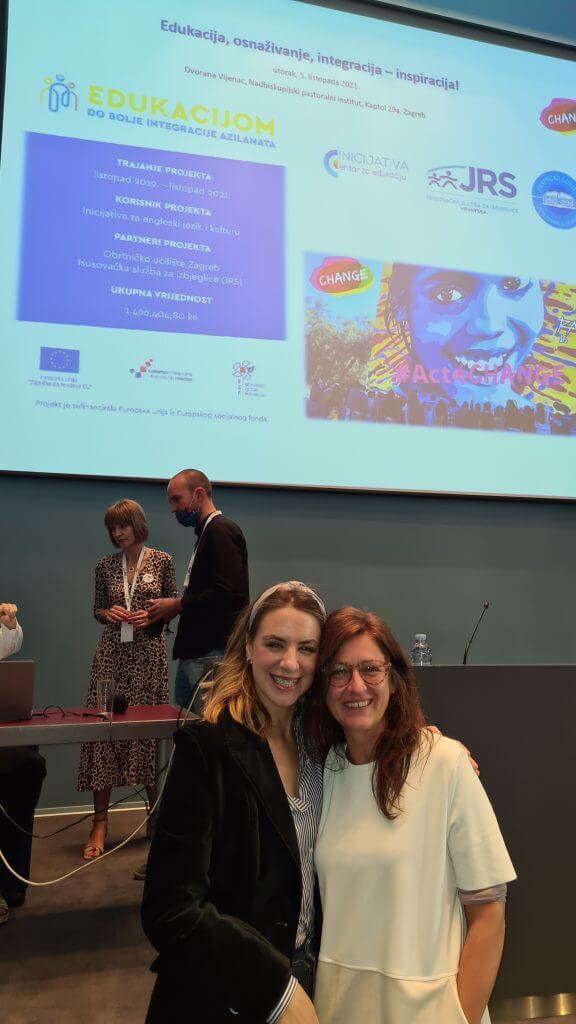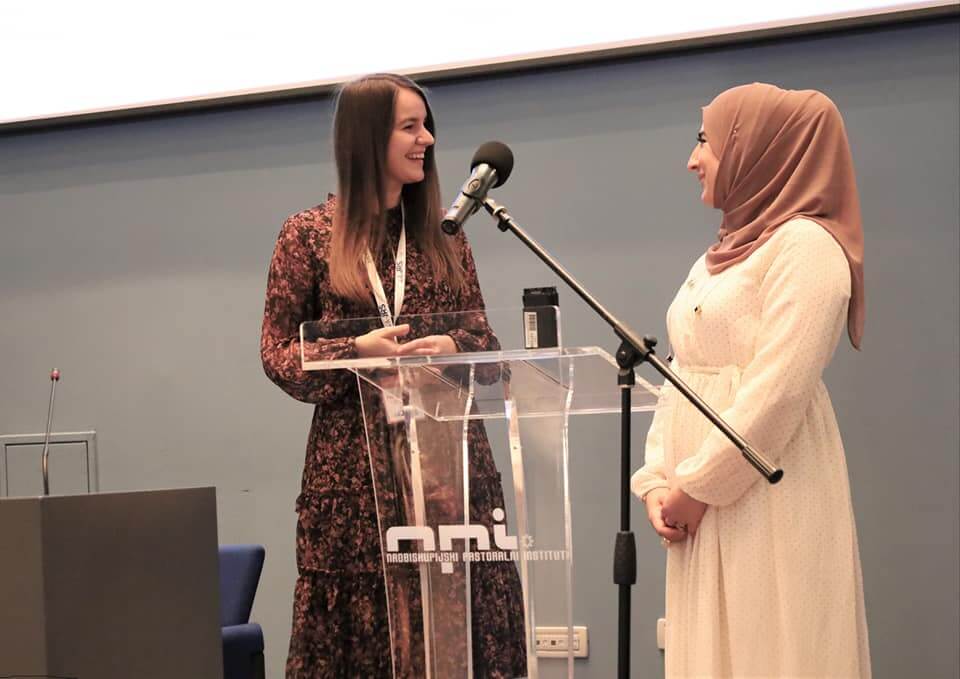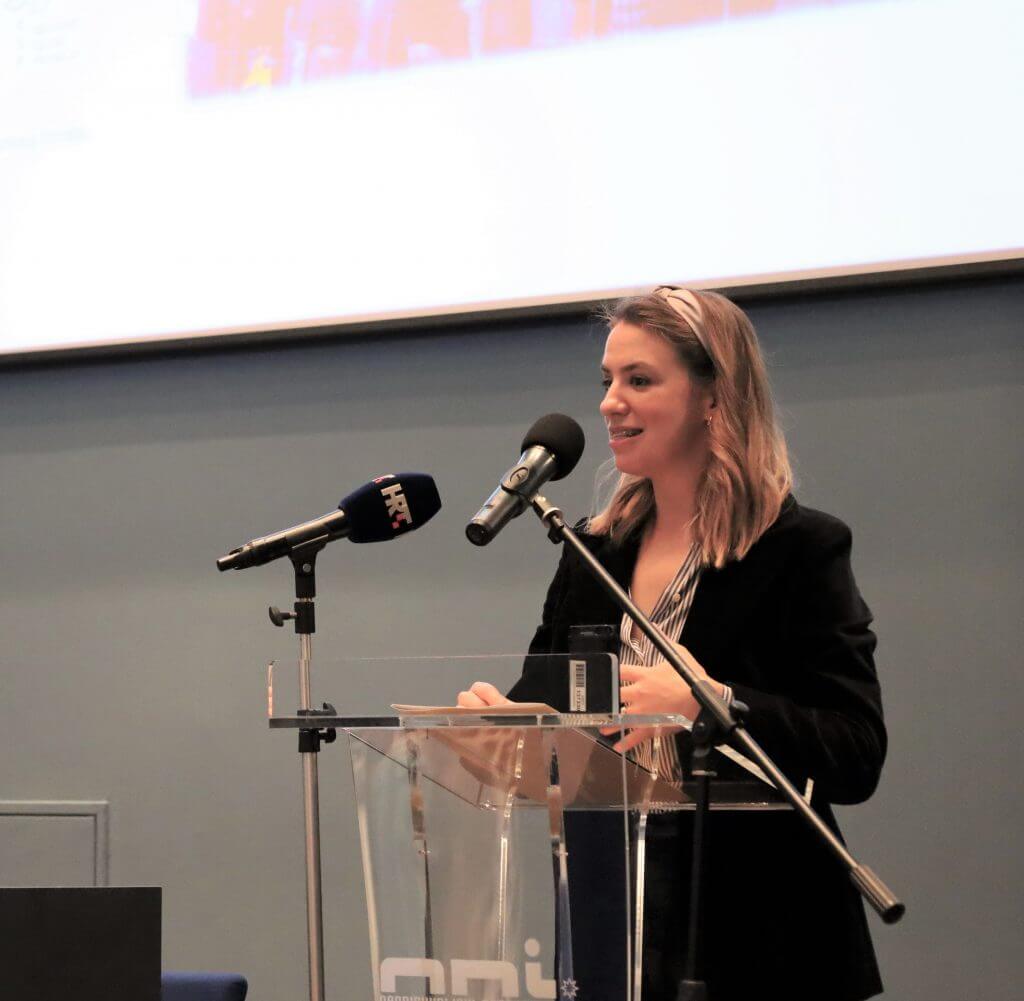Article also avaliable on EPALE.
Our teachers – Adam, Maria and Tamara – participated in mobility activities through a course held in Bologna as part of the projects 'Take Initiative' and 'Step Up'. The projects were financed by the Agency for Mobility and EU Programmes through the Erasmus+ Programme.
Each teacher attended one of the courses, and through an array of interesting and interactive activities, they shared the experience and knowledge they had gained with our other teachers from Zagreb in in-house dissemination workshops held at Initiative on the 17th of December, 2021.
In a workshop focused on tools for encouraging creativity and critical thinking, the staff at Initiative actively participated in solving creative tasks presented by our teacher, Maria. The activities included drawing, interpreting illustrations with the aim of reflecting emotions, as well as tasks encouraging critical thinking. Maria transferred the following to our educators:
- knowledge and tools for developing creativity
- experience and techniques for encouraging critical thinking
- tasks focused on problem solving
- the importance or creative expression and strengthening critical awareness within the group
Teachers Tamara and Adam presented the application of innovative methods in education – using new technologies and online tools in education (ICT tools). The Covid-19 pandemic brought big changes in group work, which was still predominantly focused on online learning. The challenges of maintaining group interaction and the students' focus online could be solved by using the latest information trends while teaching online, together with continually developing knowledge and skills in that area. Our educators were shown:
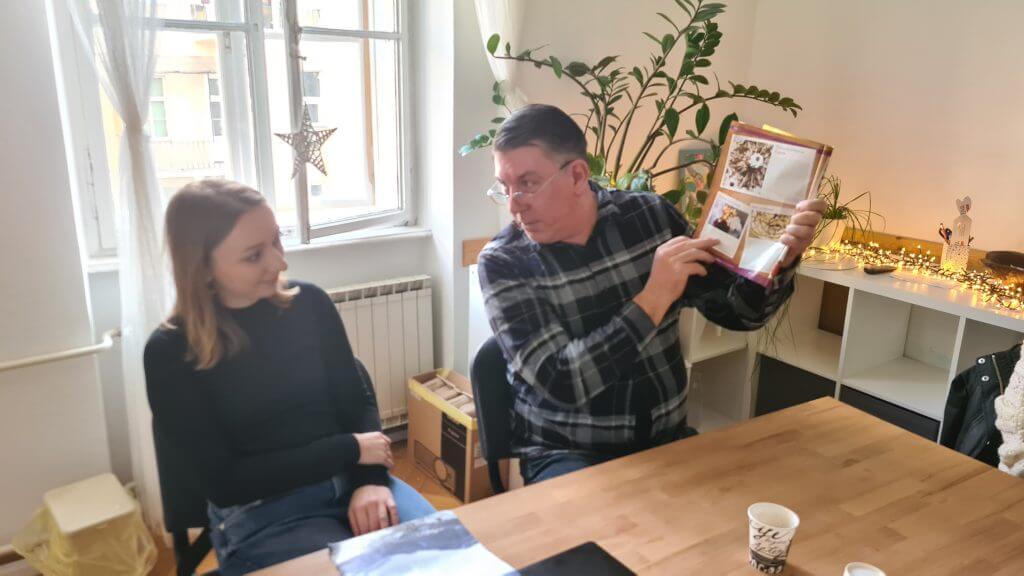
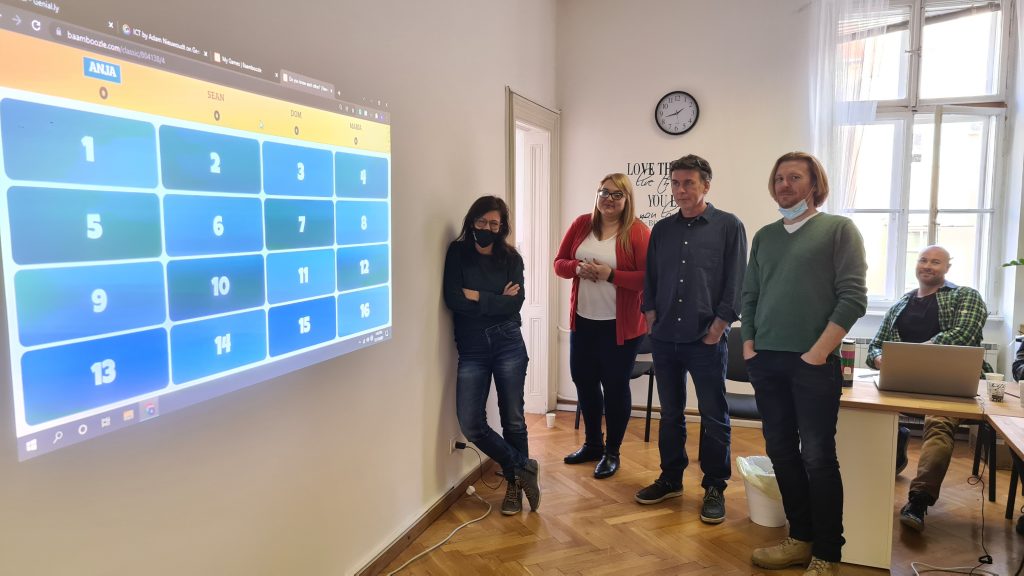
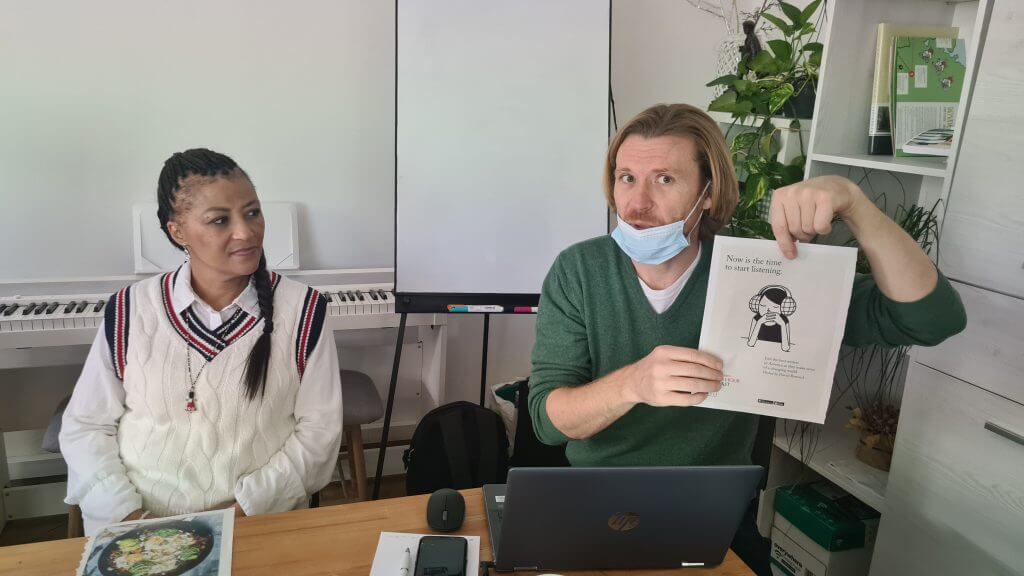
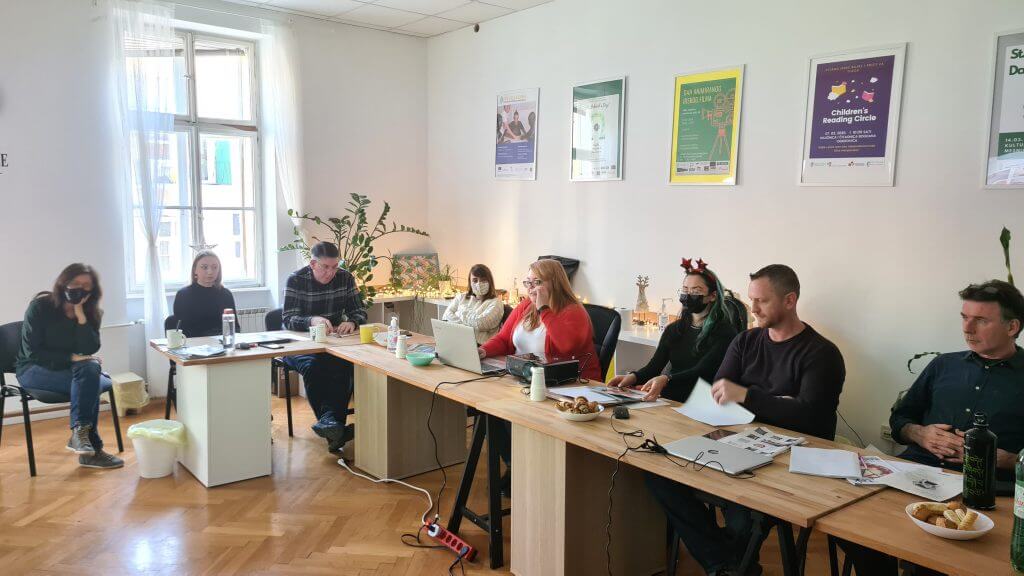
- ICT tools for creating content to be used in virtual teaching
- ICT tools for maintaining and strengthening group interaction and student focus online
- The advantages of using various online tools in a bid to make learning easier
- The importance of continually developing knowledge and skills for using virtual aids in their work
The workshops were held with the aim of transferring experience and knowledge to our educators so they would be able to implement it during lessons with their groups and, subsequently, improve their own way of teaching, as well as for the whole group dynamic. The implementation of these valuable methods and tools aim to improve the experience of face-to-face and online learning for our students, as well as strengthen the personal and professional skills of our teachers.
This project was financed by the Erasmus+ Programme of the European Union.
Dženana Kalamujić
